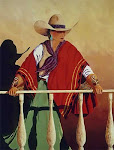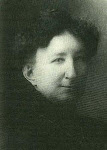Joel McCrea (November 5, 1905 – October 20, 1990). Had a paper route and delivered the Los Angeles Times to, Cecil B. DeMille. Who gave him the opportunity to watch the filming of the film, Intolerance.
While still in high school, he worked as a stunt double and held horses for cowboy stars: William S. Hart and Tom Mix. He was working as an extra, when he signed a contract with MGM. He was cast in, The Jazz Age (1929) and landed his first leading role in, The Silver Horde.
In the 1930s, McCrea starred in the film, Bird of Paradise (1932), directed by King Vidor, causing controversy for his nude scenes with Dolores del Río.
Please click here to learn more about the film Bird of Paradise(1932)
The Most Dangerous Game(1932). Pre-Code plot is about a big game hunter on an island who chooses to hunt humans for sport. The film stars Joel McCrea, Leslie Banks and King Kong leads Fay Wray and Robert Armstrong.
Bed of Roses (1933). Pre-Code/comedy, about a couple of happy- go-lucky prostitutes, who get their male pursuers drunk before robbing them, which eventually lands them in jail. Joel McCrea, plays the skipper of a small cotton boat who saves Bennett's character from drowning, after she's dived off a ship to escape capture.
In 1934, he made his first performances with actress: Miriam Hopkins, who he made five films with and Barbara Stanwyck, in which they made six films together. Later, he was the first actor to play "Dr. Kildare", in the film, Interns Can't Take Money (1937).
He starred in the westerns, Wells Fargo (1937) with his wife Francis Dee, in a film about how the US Post Office meet the demands for communication in a fast growing country of the 1840s. Joel McCrea, plays one of the early riders, who loses his family, because of his dedication.
Cecil B. DeMille's, Union Pacific (1939). The story is based on the novel Trouble Shooter, written by Western fiction author, Ernest Haycox.
The 1862 Pacific Railroad Act signed by President Lincoln authorizes building the Union Pacific Railroad toward California, but Asa Barrows, hopes to profit from obstructing it. Jeff Butler, comes up against Barrows' agent, gambler Sid Campeau and his partner Dick Allen, who is Jeff's war buddy and rival suitor for Molly Monahan.
McCrea, was in the peak of his career when he performed in the films:
Foreign Correspondent (1940).
Please click to learn more about the film Foreign Correspondent(1940).
The More the Merrier(1943),
Pleas click here to learn more abot The More the Merrier(1943)
Sullivan's Travels (1941). A comedy film written and directed by Preston Sturges. It is about a movie director, played by Joel McCrea, who wants to direct a drama, but learns that comedies are better suited for him. The film features one of Veronica Lake's first leading roles.
The Palm Beach Story (1942).
Please click here to learn more about the film,foreign-correspondent(1940)
McCrea, also starred in the westerns:
The Great Man's Lady (1942). A western film about a pioneer woman over the course of her long life and the two men who love her. It was based on the short story "The Human Side" by Viña Delmar.
Buffalo Bill(1944), with Edgar Buchanan and Maureen O'Hara. The story oflegendary William "Buffalo Bill" Cody, from his days as an army scout to owner of a Wild West show.
Please click here to learn more about the film Colorado Territory(1949)
After the success of, The Virginian(1946), a story based on the Owen Wister novel, with Joel McCrea as the Virginian and Brian Donlevy as Trampas. The film was directed by Stuart Gilmore and remains widely regarded a remake of the 1929 movie with Gary Cooper and Walter Huston. There have been several versions of the story, beginning with a 1914 film directed by Cecil B. DeMille and including a lavish 1960s television series. McCrea continued to make westerns for the rest of his career.
In 1959, Joel McCrea and his son Jody McCrea starred in the NBC-TV series Wichita Town, which lasted only one season.
A few years later, McCrea along with, Randolph Scott in, Ride the High Country (1962), which was to be his last feature film for four years, when he made The Young Rounders (1966). Four more years were to pass before his next release, but 1970 saw the release of two films: Cry Blood, Apache, again with his son Jody, and Sioux Nation McCrea made his last film, Mustang Country.



















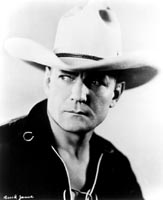
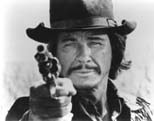
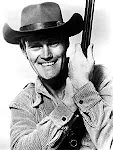






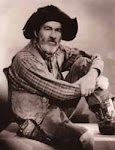



















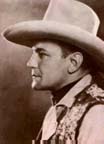




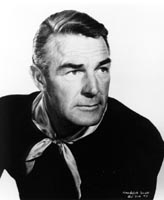
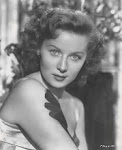








.jpg)















